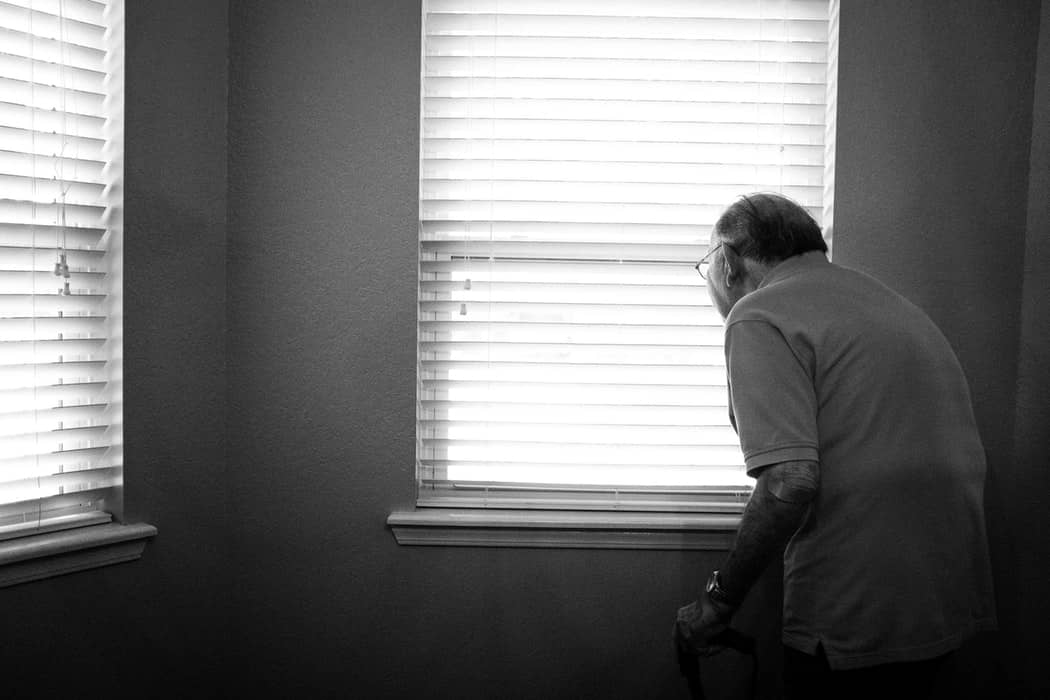Signs of Depression in Older Adults
According to the CDC, there is an estimated 20% of older adults over the age of 55 who are facing a mental health issue. Health does not only encompass a person’s physical state but also mental and social well-being. Mental health concerns, like depression, can also have adverse effects on physical well-being, social functioning and complicate the treatment of chronic diseases. Identifying the signs of depression in older adults is the first step in finding the best treatment option. 24/7 Nursing Care offers in-home psychiatric nurse placement services to facilitate help for older adults suffering from a mental health concern.
Types of Depression in Older Adults
As with any life change, some anxiety and sadness can be normal during the initial transitional period into old age. Once there has been a period of adjustment, most older adults get into their new routine and happily continue about their life. Issues arise when the emotional balance has not been restored, and depression becomes evident. There are different types of depressive disorders, including major depression, persistent depressive disorder, and vascular depression.
Major depression typically occurs as an episode and can interfere with daily activities. Persistent depressive disorder, on the other hand, lasts for an extended period of a minimum of two years. As another example, vascular depression is a unique depression type because it deals directly with the blood flow in the body. It can also lead to other illnesses like heart disease and stroke.
Sometimes, low hormones can be a cause of depression, If you’re facing low hormone then you can contact a Hormone replacement therapy in Houston at any point of time.
Signs of Depression in Older Adults
 Signs of depression are different for everyone, even more so for an older adult. Look for these signs of depression in older adults:
Signs of depression are different for everyone, even more so for an older adult. Look for these signs of depression in older adults:
- Frequent crying
- Irritability
- Restlessness
- Talking or moving more slowly
- Difficulty remembering, concentrating or making decisions
- Physical ailments with no clear cause such as headaches, cramps, digestive problems or aches and pains
- Change in eating habits and unexpected weight gain or loss
- Change in sleeping patterns
- Fatigue
Treatment for Depression in Older Adults
If you feel you are in a depressive state, reach out to your doctor for an evaluation. Medication side effects may be to blame. If that is ruled out by your doctor, more tests will be conducted as well as a psychological evaluation. Depending on the results of the psychological evaluation, treatment may begin with psychotherapy, medication, or another course of action to be determined by your healthcare provider.
In-home Psychiatric Nurses
Treatment is not a one size fits all solution and although talk therapy and medication may be enough for some, long-term care is an option for others. In-home psychiatric nurses are trained to provide basic nursing care, medication management, patient socialization, as well as to communicate with the doctor and psychiatrist.
October is Depression Awareness month, but mental health affects older adults year-round. Look for the signs of depression in older adults and work with medical professionals to find the best treatment option. 24/7 Nursing Care offers free consultations to determine if an in-home psychiatric nurse is the right fit for your circumstances. Call us today at 786-518-3622 in Miami-Dade or 954-949-1332 in Broward.
References:
Depression and Older Adults. (n.d.). Retrieved October 3, 2019, from https://www.nia.nih.gov/health/depression-and-older-adults.
The State of Mental Health and Aging in America. (2008). The State of Mental Health and Aging in America. Atlanta, GA.
Wise, C., Carlson, F., & Nagy, L. (2019, April 9). The hidden risks of suicide and depression for seniors living in long-term care. Retrieved October 2, 2019, from https://www.pbs.org/newshour/show/the-hidden-risks-of-suicide-and-depression-for-seniors-living-in-long-term-care.





